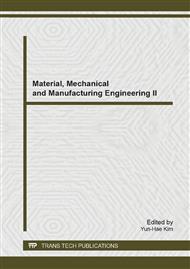[1]
Y.J. Guo, Reliability of power systems and power equipment, Automation of Electric Power Systems. 25(2001)53-56.
Google Scholar
[2]
E. Hollnagel, Cognitive Reliability and Error Analysis Method. Elsevier, Ox-ford, (1998).
Google Scholar
[3]
Reason J, Human error. Cambridge university press, UK. Cambridge, (1990).
Google Scholar
[4]
Chang Y H J, Mosleh A. Cognitive modeling and dynamic probabilistic simulation of operating crew response to complex system accidents: Part 1: Overview of the IDAC Model, Reliability Engineering & System Safety. 92(2007)997-1013.
DOI: 10.1016/j.ress.2006.05.014
Google Scholar
[5]
Chang Y H J, Mosleh A. Cognitive modeling and dynamic probabilistic simulation of operating crew response to complex system accidents. Part 2: IDAC performance influencing factors model, Reliability Engineering & System Safety. 92(2007)1014-1040.
DOI: 10.1016/j.ress.2006.05.010
Google Scholar
[6]
Li P, Chen G, Dai L, et al. A fuzzy Bayesian network approach to improve the quantification of organizational influences in HRA frameworks, Safety science. 50(2012)1569-1583.
DOI: 10.1016/j.ssci.2012.03.017
Google Scholar
[7]
Y. Fujita, E. Hollnagel, Failures without errors: quantification of context in HRA, Reliability Engineering & System Safety. 83(2004)145–51.
DOI: 10.1016/j.ress.2003.09.006
Google Scholar
[8]
Groth, Katrina M., Ali Mosleh. A data-informed PIF hierarchy for model-based Human Reliability Analysis, Reliability Engineering & System Safety. 108 (2012)154-174.
DOI: 10.1016/j.ress.2012.08.006
Google Scholar
[9]
Lee S W, Kim A R, Ha J S, et al. Development of a qualitative evaluation framework for performance shaping factors (PSFs) in advanced MCR HRA, Annals of Nuclear Energy. 38(2011) 1751-1759.
DOI: 10.1016/j.anucene.2011.04.006
Google Scholar
[10]
H.B. Lu, M. Wang, C.X. Guo, et al. A quantitative method for human reliability in power system based on CREAM, Power System Protection and Control. 41(2013)37-42.
Google Scholar
[11]
Williams J C. A data-based method for assessing and reducing human error to improve operational performance. Human Factors and Power Plants, Conference Record for 1988 IEEE Fourth Conference on. IEEE, (1988)436-450.
DOI: 10.1109/hfpp.1988.27540
Google Scholar


